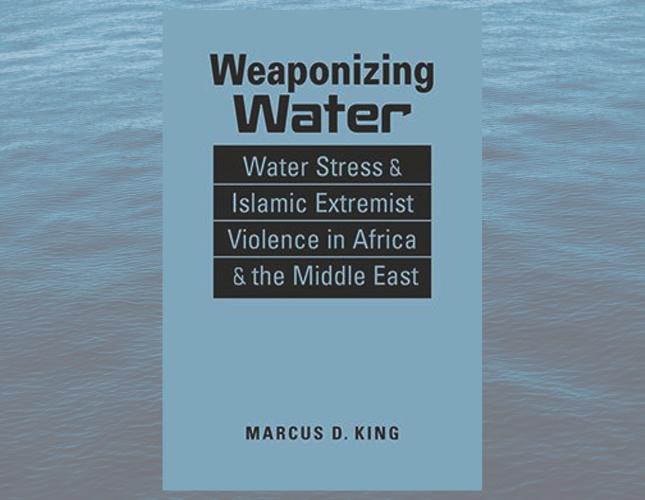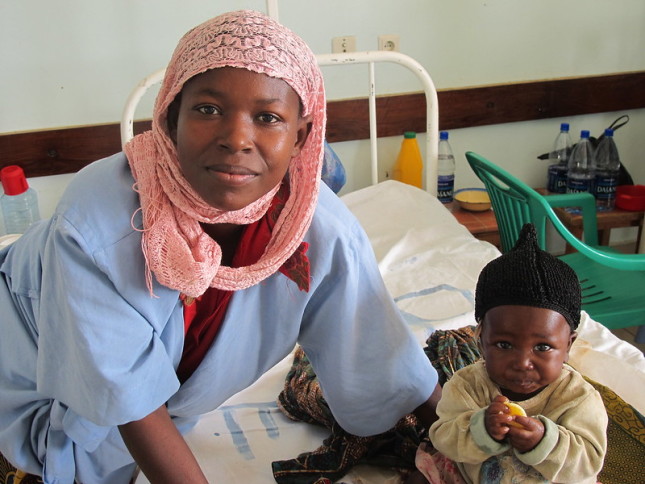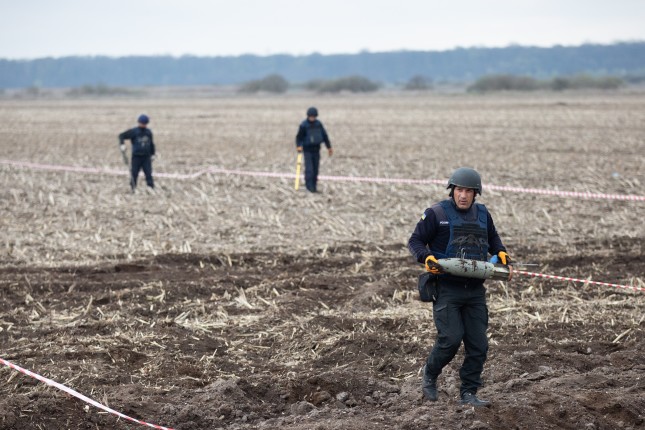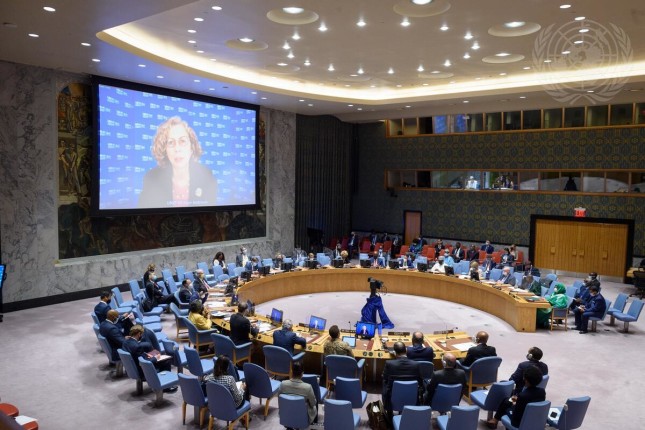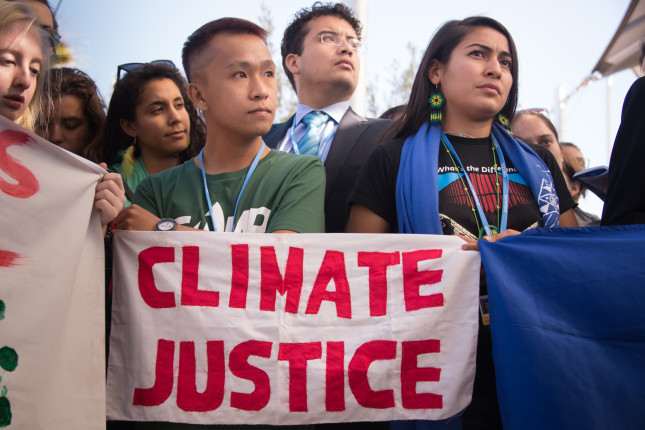-
Environmental Security Weekly Watch | July 14-18
›
A window what we’re reading at the Stimson Center’s Environmental Security Program
The World’s Children Face the Most Severe Impacts from Wildfire Smoke (Mongabay)
Evidence of the alarming impacts of wildfire smoke on child health is growing. Children’s developing lungs, faster breathing rates, and greater outdoor exposure make them uniquely vulnerable, and the threat is intensifying as wildfires grow more extreme, incinerating not just forests but urban areas, releasing toxic heavy metals and chemicals.
-
Book Preview: “Weaponizing Water” by Marcus D. King
›By 2050, two-thirds of the population will face some form of water stress. As a fundamental part of life, water—or a lack of it—influences other parts of life, including conflict. In fact, as author Marcus King notes in his new book, Weaponizing Water: Water Stress and Islamic Extremist Violence in Africa and the Middle East, there is a “correlation between the spheres of influence of violent extremist organizations (VEOs) and the driest lands or areas of sparse vegetation in some of the most arid regions on earth.”
-
Top 5 Dot-Mom Guest Contributor Posts in 2022
›
In 2022, the Dot-Mom column published several pieces from expert guest authors from the greater maternal and reproductive health community. In our top read guest contributor piece of the year, Susie Jolly examined the role of colonialism in sexuality education globally. Jolly highlighted examples where sexual health knowledge is built on unethical medical research carried out on racialized people, such as the study of untreated syphilis among Black men in the United States. Sexuality educators, especially those placed in the Global North, have a responsibility to work to decolonize their work. Jolly suggests supporting resources led by marginalized people, critically examining colonialism’s influence in the understanding of sexuality, and shifting the dynamics of who decides on content to lend more weight to non-Western expertise and young people learning from their own experiences.
-
Top 10 Posts of September and October 2022
›
In September and October’s top post, Susie Jolly captures how sex education is deeply enmeshed in the power dynamics and institutional norms established by lingering colonialist influences. “We should be outraged, but maybe not surprised at sexuality education’s colonialist connections, writes Jolly. “Sexuality and power are integrally connected at both individual and systems levels.” The author lays out three strategies to address the impact of sex education’s colonialist past and decolonize sex education: resources and reparations, changing sexuality education content, and changing who decides the content.
-
Top 5 Posts of November 2022
›
As the COP27 climate talks in Sharm El-Sheikh, Egypt fade from the headlines, governments are convening now at another COP in Montreal, Canada: The 15th Conference of the Parties (COP15) to the UN Convention on Biological Diversity. In the most-read post for November, Jesse Rodenbiker describes how China’s active leadership as COP15 president is crucial to achieving the meeting’s central aim: The adoption of a new set of global biodiversity targets. Yet China’s role in shepherding this international forum is not without complications. Rodenbiker observes that the country’s extensive protected area program—which could influence the nature of global conservation efforts—includes controversial practices that have displaced communities and reinforced inequality.
-
Top 5 Posts of August 2022
›
In August’s top post, Jiayi Zhou discusses an underexplored dimension of Russia’s invasion of Ukraine: Farmland and agriculture. While the negative impacts of the conflict on food security have become readily apparent, the geography of the war clearly shows that Russia currently occupies more than one-fifth of Ukrainian farmland. Zhou observes that Russia’s territorial ambitions are not only seen by its government as the preservation of an important natural resource, but also the extension of an overall Russian nationalism with broader implications for food security, environmental sustainability, and geopolitical ties.
-
Top 5 Posts for July 2022
›
July’s top post explored why water diplomats should revisit the realist perspective when interrogating leadership styles, cultural differences, and knowledge sharing involved in water disputes and cooperation. Over the past decade, diplomacy initiatives to address transboundary water conflicts have been frustratingly “power-shy,” write Sumit Vij, Jeroen Warner, Mark Zeitoun, and Christian Bréthaut. Multilateral institutions like the United Nations should instead address the power dynamics embedded in such disputes by engaging in track 2 (informal interaction between lower-ranking officers of both sides) or track 3 (facilitating interaction and understanding between communities) diplomacy.
-
Top 5 Posts for June 2022
›From climate change to COVID-19 and the war in Ukraine, the world is a landscape of increasing instability. Book-ending the Top 5 posts of June are two articles that explore different aspects of these converging risks. In the top post for June, Steven Gale and Mat Burrows write that globally, younger generations are becoming increasingly disengaged and discontent with their democratic governments, civil society, and institutions. Youth disillusionment is not a result of ignorance to current affairs, but rather a lack of faith in democratic institutions to address today’s most pressing global issues. Tackling youth disillusionment, suggest Gale and Burrows, begins with examining youth engagement trends and placing it at the top of the agenda.
Showing posts from category What You Are Reading.


